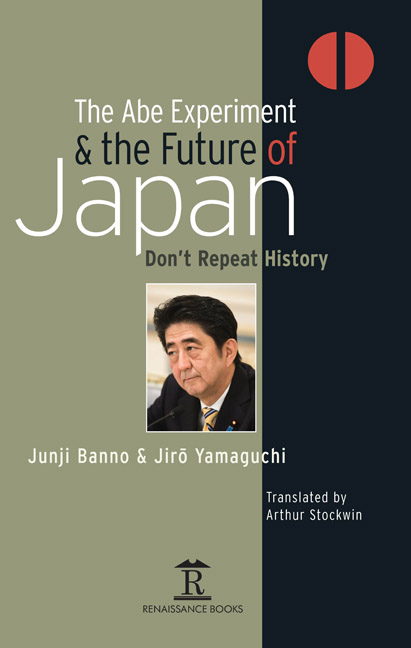Book contents
- Frontmatter
- Contents
- Foreword
- Translator’s Preface
- Conventions
- Chapter 1 Should the Aim be to Prevent Constitutional Revision?
- Chapter 2 Why was Post-war Pacifism Defective?
- Chapter 3 Is there a Political Elite in Japan?
- Chapter 4 Is the Liberal Democratic Party Really Tough?
- Chapter 5 Why Can’t We Tackle Reduction in Inequalities?
- Chapter 6 Where Should Japan Go From Here?
- Afterword
- Index
Afterword
Published online by Cambridge University Press: 30 April 2022
- Frontmatter
- Contents
- Foreword
- Translator’s Preface
- Conventions
- Chapter 1 Should the Aim be to Prevent Constitutional Revision?
- Chapter 2 Why was Post-war Pacifism Defective?
- Chapter 3 Is there a Political Elite in Japan?
- Chapter 4 Is the Liberal Democratic Party Really Tough?
- Chapter 5 Why Can’t We Tackle Reduction in Inequalities?
- Chapter 6 Where Should Japan Go From Here?
- Afterword
- Index
Summary
AS WE HAVE often repeated, the aim of this dialogue has been to extract key issues from 150 years of modern Japanese history, and so far as possible indicate a path towards a resolution of those issues, in a discussion between Professor Yamaguchi Jirō, who as a political scientist has conducted practical analysis of the seventy years of contemporary history since the war, and myself. In my case, I have researched more than eighty years of Japanese modern history since the arrival of Perry's fleet in 1853.
I think that the relations between the two of us will be to some extent comprehensible from the letter summarized at the beginning of the book. There has never been a teacher-pupil relationship between us at university. There has never been a relationship in, for instance, a political science association, or similar professional body. Just one thing is in common between us, namely that we have come to believe that the humanities and social sciences are not just a world of hobbies.
More than twenty years ago I became tired of merely pursuing objective truth and conducting value-free empirical research, and I developed a strong feeling that I should utilize my specialist knowledge, to some extent at least, so as to contribute to the improvement of political society. It was about that time that I began to realize that I had much in common with the words and actions of Professor Yamaguchi. Comparable with my case as someone belonging to the 1960 Security Treaty protest generation, he continues to explain his own views in newspapers and on television, with no concern for current fashions of thought, and no doubt my former self merges with this current personality.
- Type
- Chapter
- Information
- The Abe Experiment and the Future of JapanDon't Repeat History, pp. 137 - 138Publisher: Amsterdam University PressPrint publication year: 2016

